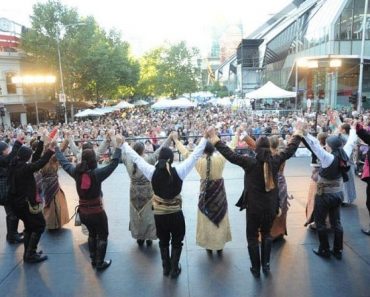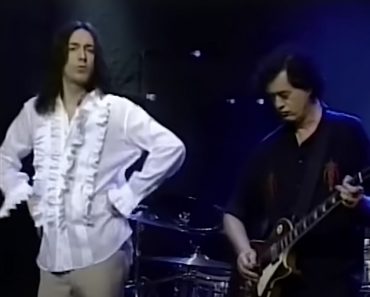Think words and music: Rogers and Hammerstein, Gilbert and Sullivan, the brothers Gershwin. Sometimes, collaborators might not even have met. For example, works by Greek poets of the Archaic period (800-500 B.C.E.)—centuries before the Classical era of Plato, Sophocles, and Aristophanes—have now been set to music by singer/songwriter Robin Batteau ’69 (’22) for his new album, Banned in Sparta.
Batteau was absent from Harvard classrooms for more than 50 years. He dropped out in 1968 when his family’s finances collapsed, although a big advance from Columbia Records for his band Appaloosa allowed him to help out at home. Then, after a long career as a professional musician—living at different times in Massachusetts, California, New York, and Connecticut—in the summer of 2021 he returned “to see if I still had what it took to be a student.” (That 57-year gap between matriculation and graduation might set a Guinness world record, if Batteau wanted to fork over the pricey application fee.)
The son of a mathematics professor and a concert pianist, Batteau had acted in a play by Aeschylus at age nine at the Shady Hill School in Cambridge. When he returned to Harvard, his lifelong love for ancient Greek culture led him to courses taught by lecturer on the classics Natasha Bershadsky and Jones professor of Classical Greek literature Gregory Nagy. There, he discovered the Archaic lyric poets, including Archilochus (680-645 B.C.E.), “the Bob Dylan of the seventh century B.C.,” Batteau says. “He was a soldier, but so irreverent that he was banned in Sparta. I thought, ‘That’s the name of my next album.’” Sure enough, Banned in Sparta includes “Archilochus Re-Deemed,” sung by Broadway actor and singer James Naughton. Its nearly three-millennia-old lyrics include:
I don’t like my army commander,
up on his high horse
Trimming his beard in the mirror
Brushing his wavy hair, of course
Gimme a little guy with a lot of guts,
who may not look so tough
He’s the one I’m going with
when the going gets rough.
The Archaic poets were less authors than singer/songwriters who danced and sang their creations onstage, Batteau explains, “like Joni Mitchell, Bruce Springsteen, or Taylor Swift.” They accompanied themselves on lyres—hence, “lyric” poetry. Today, their verses surface mostly on shards of pottery or parchment. Only one complete poem now survives from even the most famous of them, Sappho (circa 630-570 B.C.E.). Nevertheless, Batteau saw that he might “take some fragments that could hang together as a song and then fill in the blanks. It’s sort of like completing a dinosaur skeleton with bones made in a lab. And it felt great!”
“When I found myself moved to laughter or tears, I’d know I was on to something.”
“I’d assemble a bunch of a lyric poet’s fragments into rhymes and such, and pick up the guitar—to which I’d added a string, to give it seven like the classic lyre,” he says, “and then would start singing, letting the song happen. When I found myself moved to laughter or tears, I’d know I was on to something, and plow ahead. These songs are written without concern for whatever anyone else thinks, just me and the poetic singer-songwriter channeling the Muse.”
Banned in Sparta includes rock singer Robin Lane performing Batteau’s “Terra Cotta Heart,” with lyrics drawn from Sappho. In his liner notes, Batteau recalls musing on Sappho’s fragments (he read hundreds of translations) and writing “what it made me feel, as if I were inhabiting her spirit with lyre in hand and the island of Lesbos outside the window.” Since “she graced more ancient urns than anyone but the gods, I call the song ‘Terra Cotta Heart.’” Its exchange between Sappho and Aphrodite includes:
She says,
Sappho, who’s doing you wrong?
The moon is down, the stars abound
The Pleiades emerging
Matrix of the virgin
You were before and you are again
each time you call my name
I may turn you in the fire, but it’s you
that sparks the flame.
Batteau adapted modern instruments to echo ancient ones; in one song, he muted his violin to “play the part of the aulos, the oboe-like double-reed often seen in Sappho’s hand.” Across his career in folk and pop, he has played violin, guitar, and mandolin and sung vocals. All these chime in on Banned in Sparta. He also invited musician friends to the party. Folk music luminaries Carolyn Hester, Tom Paxton, and Eric Andersen sing cuts, as do Livingston and Kate Taylor, among others.
Batteau’s own career has produced 12 CDs. His music features in works winning Emmy, Grammy, Gold Record, and Clio awards, as well as an Oscar nomination. For years, he performed and recorded with fellow musician David Buskin as “Buskin and Batteau,” and also had a successful sideline writing jingles like the Chevrolet slogan “The Heartbeat of America” and the McDonald’s standard, “I’m Lovin’ It.”
Exploring a far different kind of love, the new album features Livingston Taylor singing “Sappho Sweetly Smiling,” a love song to the poetess by a male Lesbos contemporary, Alcaeus (circa 625-580 B.C.E.), who also competed with Sappho as a lyric poet. He begins his ode with the ageless observation that wine can loosen, even enable, the tongue:
How come it takes the purple harvest
of the vine, bleeding in the press
For the wine to do the talking,
every time, our secrets to confess
How come it always seems to take
a sea of trouble to see the light
climb up the rigging to the sail
How come the only girl who gets me
seeing double ties my tongue in knots
Why won’t the wine prevail?
And its chorus glows with admiration:
But raise a song for her, O Muse,
the violet-crowned maiden
And praise her soft throat’s changing
hues, her low voice laughter-laden
Sing yet again her thousand charms, her
eyes’ entrancing splendor
Her suntanned cheeks and supple arms,
and bosom bold and tender
Yea, sing forever more of her, my mistress
soft, beguiling
Fairest of all who are or were, my Sappho
sweetly smiling
My Sappho sweetly smiling, my Sappho
sweetly smiling.







